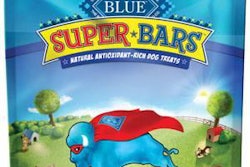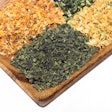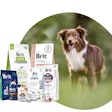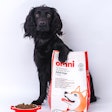
Despite recent sales slowdowns, pet superstores will continue to drive major growth for Blue Buffalo, said company executives at Barclays 2016 Global Consumer Staples Conference on September 8. Along with superstores, Blue Buffalo plans to expand their presence in farm stores and local pet stores.
Superstores
Blue Buffalo expects net sales of between US$1,140 million and US$1,150 million for fiscal year 2016. PetSmart and PetCo accounted for 65 percent of Blue’s sales in the second quarter, but there has been a slow-down in pet superstore sales. However, Blue Buffalo still sees opportunity for growth because the stores offer experiences and services that customers can't get online.
“While there’s been a little slow down, we’re think that there’s opportunity to change that trajectory and grow more based on what we’re hearing from superstore management,” said Billy Bishop, president and chief operating officer.
Growing channels
Meanwhile, growth has accelerated in other retail segments, what Bishop called “other specialty channels.” Farm and feed stores are allowing Blue Buffalo to enter new geographic territory in outer suburbs and rural areas. Likewise, local and regional pet stores connect Blue Buffalo to suburban and urban neighborhoods.
Both of farm stores and local pet stores have seen high single digit growth in Blue Buffalo sales. The company’s products have also expanded their shelf space. For example, Tractor Supply increased Blue Buffalo’s retail real estate this past year.
Gross margins
Gross margins have been stronger than expected over the past year. Blue Buffalo’s expects its gross margin to be approximately 44 percent for the year.
Kurt Schmidt, Blue Buffalo chief executive officer, said that he believes the margin could become even more favorable and reach the upper forties. Current plans to build new production and research facilities could drive the margin growth.
About Blue Buffalo
Blue Buffalo entered the public market with a US$677 million IPO in July 2015. Approximately 96 percent of Blue's market is domestic; products also are marketed and sold in Canada and, to a lesser extent, Mexico and Japan. US manufacturing and distribution is conducted through a hybrid network of owned and contracted facilities.



















